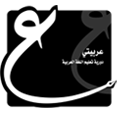The Complexity of Arabic Scrabble : Problems and Analysis of Using Arabic Alphabet in Scrabble
DOI:
https://doi.org/10.65679/arabiyyat.v1i2.90Keywords:
Arabic Scrabble, Problems, VocabularyAbstract
English scrabble is a prestigious language board game in the world. In addition to being a medium of vocabulary mastery, English scrabble is also an international tournament. Ironically, this is not shared by Arabic scrabble even though it is one of the languages that most speakers and learners learn. The uniqueness of Arabic and the difference in structure with English are the main factors causing the stagnant Arabic scrabble game. Finding the complexity of problems in terms of language structure and Arabic scrabble components is the purpose of this study. By coming up with a theory that will make Arabic scrabble more adaptively accepted by even non-native speakers. Descriptive qualitative methods were used in this study with data sourced from observations, interviews, and literature studies. The subjects observed and interviewed were students of UHAMKA Arabic Language Education. Other sources refer to related books and journals. The data were analyzed using comparative and reduction techniques. Overall, the inequality of tile distribution of the Arabic alphabet and the English alphabet, then diacritical symbols (harakat) as Arabic vowels, and the need for editions that are friendly to foreign speakers are the three points of the final results of this study.
References
Abraham, C., Chang, H., Chang, W., Kiers, G., & Meyer, A. (2024). Vocabulary Learning Vs. Vocabulary Acquisition. Retrieved May 21, 2024, from Texas Linguistics Society Conference - Proceedings website: https://tls.ling.utexas.edu/2017/proceedings.html
Arif, M. (2020). Efektivitas Media Pembelajaran dalam Penguasaan Kosa Kata Bahasa Arab. `A Jamiy : Jurnal Bahasa Dan Sastra Arab, 9(1), 1–15. https://doi.org/10.31314/AJAMIY.9.1.1-15.2020
Bukhori, E. M., & Sulton, A. (2022). Development of Arabic Scrabble Game to Improve Arabic Vocabulary for Students of Arabic Education Study Program IAIN Jember. AL-ISHLAH: Jurnal Pendidikan, 14(4), 6197–6214. https://doi.org/10.35445/ALISHLAH.V14I4.2597
Daulay, S. H., & Adelita, D. (2023). Using Scrabble as a Gamification to Enhance Students’ Motivation and Vocabulary Acquisition: Teachers’ Perspective. Metathesis: Journal of English Language, Literature, and Teaching, 7(1), 1–16. https://doi.org/10.31002/METATHESIS.V7I1.150
Dwivedi, R. (2015). Games for Language Learning. In Brave New Digital Classroom (Vol. 4). https://doi.org/10.2307/j.ctv1nc6rkf.10
Edley, J., & Williams, J. (2009). Everything Scrabble: Third Edition. Retrieved May 23, 2024, from https://books.google.co.id/books?hl=id&lr=&id=Uml_kpOO64gC&oi=fnd&pg=PR13&dq=alfred+mosher+butts&ots=6o9YJ8bU1J&sig=rO55z0UtRHg1qd6Ch5bV5epyeU4&redir_esc=y#v=onepage&q=alfred mosher butts&f=false
Fadli, M. R. (2021). Memahami desain metode penelitian kualitatif. Humanika: Kajian Ilmiah Mata Kuliah Umum, 21(1), 33–54. https://doi.org/10.21831/HUM.V21I1.38075
Fathanah, I., & Maulani, H. (2023). Permainan Scrabble dalam Penguasaan dan Pelafalan Kosakata Bahasa Arab. MUMTAZA : Journal of Arabic Teaching, Linguistic And Literature, 02(02), 62–76.
Febriani, E. (2021). Increasing Student’s Arabic Vocabulary Through Scrabble as an Educational Media Tools. https://doi.org/10.2991/ASSEHR.K.210120.141
Geolas, A. (2023). Scrabble and the Image of the (Out-of Work) Architect. Playing Place, 7–10. https://doi.org/10.7551/MITPRESS/14352.003.0005
Hasyim, A. (2016). Keistimewaan Bahasa Arab Sebagai Bahasa Al-Qur’an. Nidhomul Haq: Jurnal Manajemen Pendidikan Islam, 1(1), 1–28. https://doi.org/10.31538/ndh.v1i1.5
Hidayah, F. (2019). Kearbitreran Bahasa Arab dan Urgensi Mempelajarinya dalam Pandangan Linguis Arab Klasik. Studi Arab, 10(2), 101–1016. https://doi.org/10.35891/sa.v10i2.1855
Istiqomah. (2016). EKSPERIMENTASI PEMBELAJARAN BAHASA ARAB BERBASIS SCRABBLE. Retrieved May 11, 2024, from al Mahāra: Jurnal Pendidikan Bahasa Arab website: https://ejournal.uin-suka.ac.id/tarbiyah/almahara/article/view/2016.021-07
Linda Eka Sari, S., Haniah, & Hamka Ilyas. (2023). Strategi Pembelajarab Bahasa Arab Berbasis Scrabble terhadap Penguasaan Kosa Kata dan Keterampilan Menulis Siswa Kelas VII Madrasah Tsanawiyah Al-Bana Asing Hamzanwadi NW (Nahdlatul Wathan) Kecamatan Baras Kabupaten Pasangkayu Sulawesi Barat. Shaut Al Arabiyyah, 11(1), 195–213. https://doi.org/10.24252/SAA.V11I1.38643
Maglio, P. P., Matlock, T., Raphaely, D., Chernicky, B., & Kirsh, D. (2020). Interactive Skill in Scrabble. Proceedings of the Twenty First Annual Conference of the Cognitive Science Society, 326–330. https://doi.org/10.4324/9781410603494-62
Millah, A. S., Apriyani, Arobiah, D., Febriani, E. S., & Ramdhani, E. (2023). Analisis Data dalam Penelitian Tindakan Kelas. Jurnal Kreativitas Mahasiswa, 1(2), 140–153.
Milton, J. (2022). Vocabulary denial and the false god of structuralism in Ofsted’s 2021 Curriculum Research Review for languages. The Language Learning Journal, 50(2), 156–171. https://doi.org/10.1080/09571736.2022.2045680
Omolara Onasanya, T., Aladesusi, G. A., & Onasanya, S. A. (2021). Indonesian Journal of Learning and Instruction EFFECT OF SCRABBLE GAME ON SECONDARY SCHOOL STUDENTS’ ACADEMIC ACHIEVEMENTS IN SELECTED ENGLISH LANGUAGE CONCEPTS IN ILORIN METROPOLIS. Indonesian Journal of Learning and Instruction, 4(2), 17–30. https://doi.org/10.25134/ijli.v4i2.5200
Pemberton, I. (2024). The Lexical Approach. Usage-Based Second Language Instruction, 85–102. https://doi.org/10.1007/978-3-031-53414-0_7
Pratama, F. F. (2020). MEMBANGUN KARAKTER SISWA MELALUI PENGGUNAAN MEDIA PEMBELAJARAN SCRABBLE GAMES. Academy of Education Journal, 11(2), 129–141. https://doi.org/10.47200/AOEJ.V11I2.397
Qomari, R. (2009). Teknik Penelusuran Analisis Data Kuantitatif dalam Penelitian Kependidikan. INSANIA : Jurnal Pemikiran Alternatif Kependidikan, 14(3), 527–539. https://doi.org/10.24090/insania.v14i3.372
Rafsanjani, H., Zubaidillah, M. H., & Nuruddaroini, M. A. S. (2022). Problematika Mahasiswa dalam Manajemen Skill Berbahasa Arab pada Perguruan Tinggi di Kalimantan. Jurnal Basicedu, 6(3), 5166–5180. https://doi.org/10.31004/basicedu.v6i3.3072
Rifa’i, A. (2021). Kajian Filosofi Pendekatan Komunikatif dalam Pembelajaran Bahasa Arab. Revorma: Jurnal Pendidikan Dan Pemikiran, 1(1), 60–74. https://doi.org/10.62825/revorma.v1i1.1
Rusandi, & Rusli, M. (2021). Merancang Penelitian Kualitatif Dasar/Deskriptif dan Studi Kasus. Al-Ubudiyah: Jurnal Pendidikan Dan Studi Islam, 2(1), 48–60. https://doi.org/10.55623/AU.V2I1.18
Sakdiah, N., & Sihombing, F. (2023). Problematika Pembelajaran Bahasa Arab. Jurnal Sathar, 1(1), 34–41. https://doi.org/10.59548/js.v1i1.41
Sari, D. F., Sahardin, R., Yani, V., & Yusuf, Y. Q. (2022). Scrabble game technique: A game changer for English vocabulary learning. Englisia: Journal of Language, Education, and Humanities, 10(1), 1. https://doi.org/10.22373/EJ.V10I1.12388
Wang, H., Pexman, P. M., Turner, G., Cortese, F., & Protzner, A. B. (2018). The relation between Scrabble expertise and brain aging as measured with EEG brain signal variability. Neurobiology of Aging, 69, 249–260. https://doi.org/10.1016/J.NEUROBIOLAGING.2018.05.015
Downloads
Published
Issue
Section
License
Copyright (c) 2024 Fauzan Hakami, Muaz Kalimatun Nabil, Doni Wahidul Akbar, Miatin Rachmawati, Ammar Madi (Author)

This work is licensed under a Creative Commons Attribution-NonCommercial-ShareAlike 4.0 International License.



